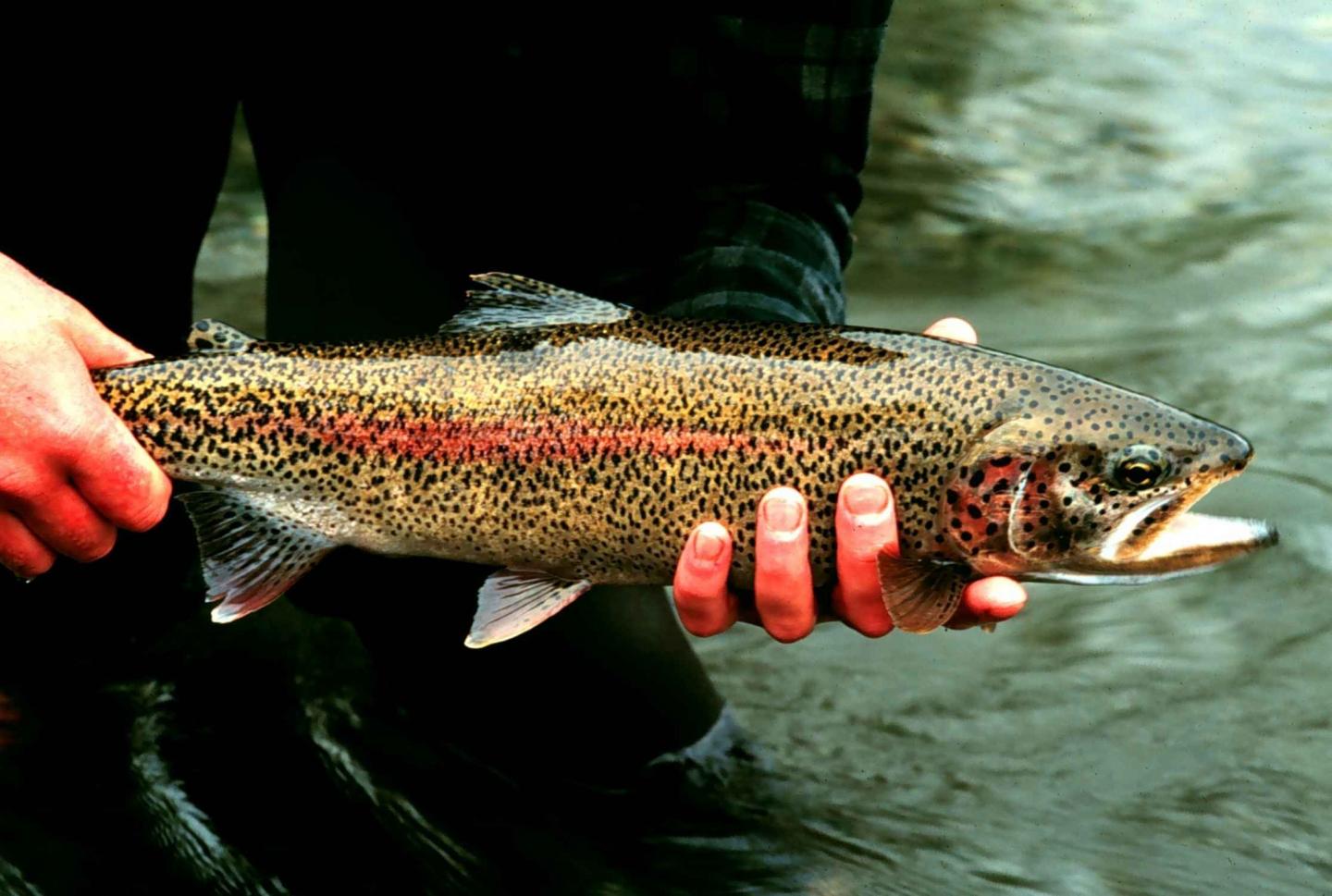Research represents the only work of its kind in rainbow trout, a $100 million industry in the U.S. alone

Credit: Public domain
Global development and population growth has led to an increased demand for seafood around the world, but along with that demand comes a need for improved production. To meet this need in one of the most popular fish in the U.S., the University of Maryland (UMD) was recently awarded a grant from the United States Department of Agriculture National Institute of Food and Agriculture (USDA-NIFA) to explore genomic selection as a method of increasing fillet quality and yield in rainbow trout. Rainbow trout represents a $100 million industry in fish sales alone. This is separate from the significant recreational appeal of the fish, with trout fishing attracting about 8 million anglers throughout the year. But while genomic selection has been widely adopted in livestock programs as a way to increase yield, it is yet to be adopted in aquaculture. With this grant, UMD and collaborators across academia and industry are taking the lead in showcasing the benefits of genomic selection in rainbow trout and beyond.
“The overarching goal of this work in rainbow trout is to use the most current technologies in novel ways for aquaculture to help solve a fundamental problem for the industry,” says Mohamed Salem, associate professor in Animal & Avian Sciences with UMD and the lead on this work. “Using genomic technologies and genetic markers, we can help identify the genes that are important for how feed transitions into filet in the fish. When you grow a fish, some fish will put more of the feed energy you give them into filet, and some will deposit more into visceral fat, which is a complete waste. So identifying the genetic markers that are associated with this conversion process will help improve feed efficiency.”
As Salem explains, muscle fillet is the most valuable product for rainbow trout, so anything to improve the quality and quantity of filet on a fish will improve production efficiency. While classical breeding can improve yield over time, it is a slow and time-consuming process. Genomic selection provides breeders with the additional information needed to increase the accuracy of precision breeding and improve the overall genetic quality of their breeding stock much more rapidly.
In order to achieve this goal, Salem is partnering with USDA, University of Georgia, University of Idaho, Middle Tennessee State University, and Pacific Aquaculture. Pacific Aquaculture is an industry partner that grows rainbow trout in Washington and Idaho, and they hope to find a solution to a common industry problem known as downgrading that costs them tens of thousands per week.
“Downgrading is related to cracks in a filet that don’t look good for customers, so they downgrade the product to nuggets or for other uses and are unable to sell the filets at the normal price in the consumer market,” explains Salem. “Downgrading occurs in about 15% of filet products, and this goes beyond trout. Atlantic salmon, with a market value of $18 billion worldwide, also has a similar problem. But very few researchers are examining this issue, and no one is looking at it in rainbow trout.”
The reason why these cracks in the filet form are unknown, but this work will help determine the genetic reasons behind the problem while examining genetic markers that connect to filet quality. By partnering within academia and industry, the work has the potential to make a real impact across aquaculture.
“Rainbow trout is a fish that the U.S. is responsible for spreading, but now ironically we are not even the number one producers globally,” says Salem. “But it is an important commodity for us, and we love to catch it recreationally and enjoy it as a healthy source of protein. Working directly with industry, we are able to solve problems, share our knowledge directly with producers to help improve their businesses, and still contribute to new and novel science.”
This work is funded by the United States Department of Agriculture National Institute of Food and Agriculture (USDA-NIFA) Award #2021-67015-33388.
###
Media Contact
Samantha Watters
[email protected]
Original Source
https:/





